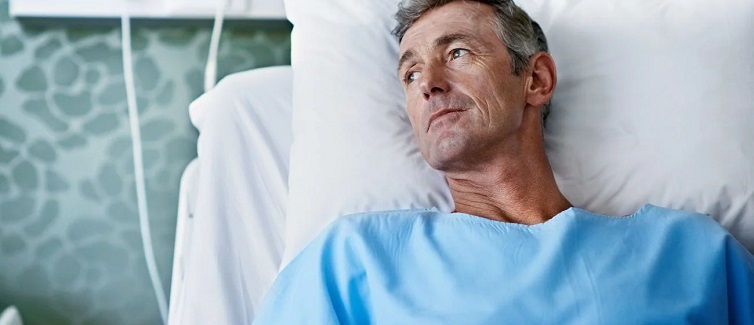If you’re having hernia surgery, you probably have a lot of questions about the recovery process.
Your first question might simply be: When will I be able to leave the hospital or surgery center? It’s different for everyone. But you’ll likely be able to go home once your pain is under control and you can empty your bladder and pass gas.
Your doctor will give you discharge instructions and review any specific precautions you need to take.
But what precautions after hernia surgery are most common? What is a typical recovery and return to activity like for most people? And most importantly, how will you know if something is truly wrong?
The specialists at the UPMC Comprehensive Hernia Center have offered some basic recovery tips and warning signs for hernia surgery patients.
Never Miss a Beat!
Subscribe to Our HealthBeat Newsletter!
Thank you for subscribing!
You can now select the specific newsletters you'd like to receive.
You are already subscribed.
Subscribe to more newsletters in our email preference center.
Sorry, an error occurred. Please try again later.
Get Healthy Tips Sent to Your Phone!
Precautions After Hernia Surgery
Here are some key things to keep in mind as you recover from hernia surgery.
- DO eat as soon as you can, but start with liquids and slowly add in small meals. Pay attention to your appetite — and don’t worry if you’re not as hungry as normal.
- DO stay well hydrated. Aim to drink 6 to 8 cups of fluid a day.
- DO continue to take prescribed pain medication, but switch to Tylenol (acetaminophen) or Advil/Motrin (ibuprofen) as soon as you can tolerate. This will help decrease any nausea or constipation from narcotics.
- DON’T drink alcohol while taking narcotic pain medication. It’s okay to have an alcoholic drink after you’re off any narcotics.
- DO wear loose, comfortable clothes that don’t rub your incision.
- DON’T panic if you have to sneeze, but keep a pillow close by. Brace your incision with it when sneezing or coughing to protect from possible tearing.
- DO try to stay active and take short walks. This helps prevent blood clots.
- DO get enough rest and take naps in the afternoon if you’re able. You’ll likely notice that you become tired more easily. This fatigue should fade within about 6 weeks.
- DON’T swim, take a bath, or get in a hot tub for at least 2-3 weeks. Submerging yourself in water increases the risk of your incision becoming infected. Take showers and follow your discharge instructions about how to care for your incisions.
- DO follow discharge instructions to take stool softeners. This reduces constipation. You should also aim to eat 20 to 35 grams of fiber per day.
- DON’T worry about mild swelling, bruising, or a hard feeling under your incisions. It’s normal for hardness under the wound to stick around for up to 6 months.
- DON’T lift more than 10 to 20 pounds for 4 to 6 weeks after surgery. This is a general guideline and your doctor may have a more specific weight restriction and timeline.
- DO slowly add in other activities in the weeks after surgery. This can include brisk walking, biking, or gentle yoga. Ask your doctor what activities you can do and when.
- DON’T panic if you have pain in your right shoulder. The gas we use to inflate your belly during surgery can cause residual pain here. Lying flat should help it go away.
When to Call the Doctor After Hernia Surgery
If you have a sense that something isn’t right, follow your gut and call the doctor. We tell our patients at the Comprehensive Hernia Center that they can call anytime.
If you haven’t had a bowel movement in 4 days, call your doctor. It doesn’t mean that it’s an emergency. But you should make your doctor aware.
If you develop any of these symptoms in the days after surgery, call your doctor:
- Severe shortness of breath.
- Fever of 101 or more.
- Vomiting or diarrhea that lasts for more than a day,
- An incision that looks infected, particularly if it feels suddenly warm, darkens in color, or oozes a bad-smelling discharge.
- Feelings of numbness in your limbs.
- An increase in pain (after it seemed to be getting better).
About UPMC
Headquartered in Pittsburgh, UPMC is a world-renowned health care provider and insurer. We operate 40 hospitals and 800 doctors’ offices and outpatient centers, with locations throughout Pennsylvania, Maryland, New York, West Virginia, and internationally. We employ 4,900 physicians, and we are leaders in clinical care, groundbreaking research, and treatment breakthroughs. U.S. News & World Report consistently ranks UPMC Presbyterian Shadyside as one of the nation’s best hospitals in many specialties and ranks UPMC Children’s Hospital of Pittsburgh on its Honor Roll of America’s Best Children’s Hospitals. We are dedicated to providing Life Changing Medicine to our communities.
